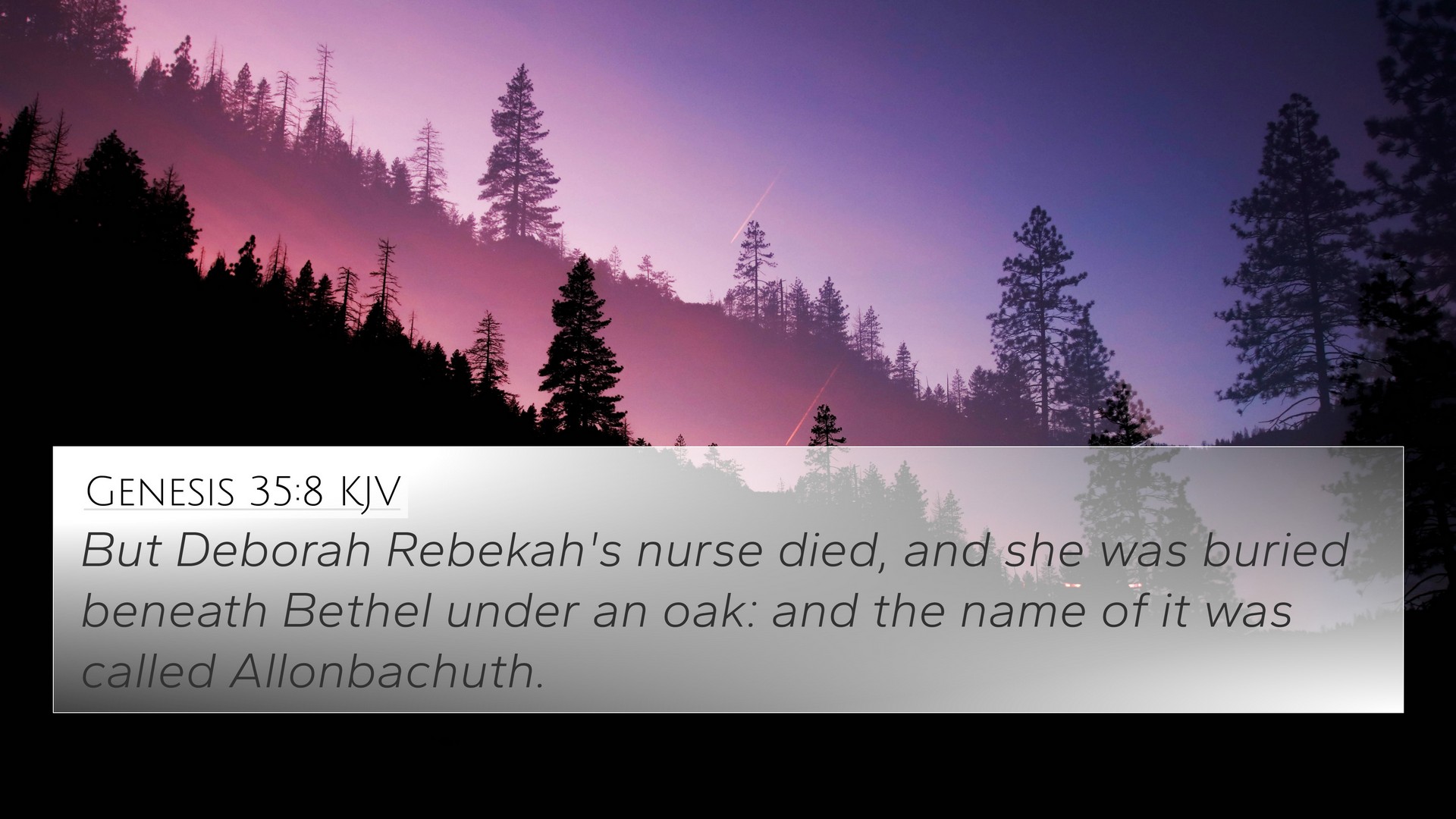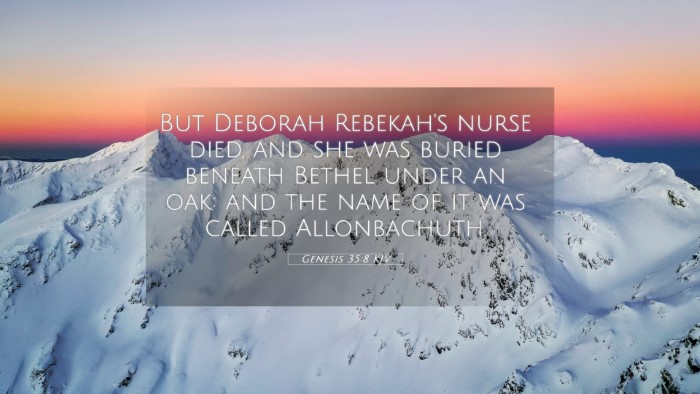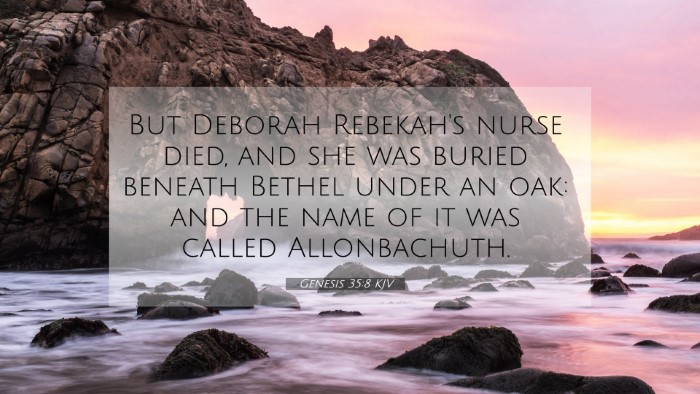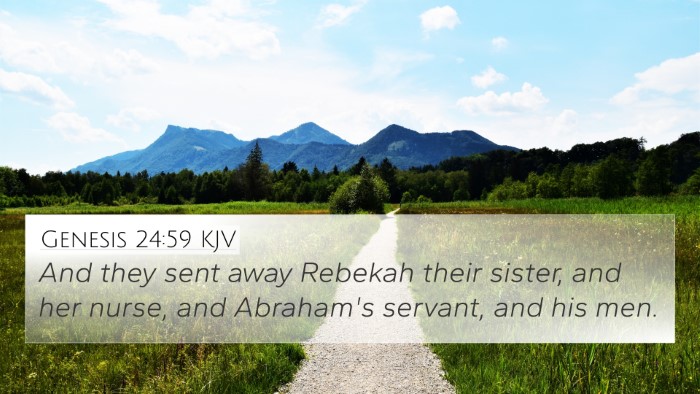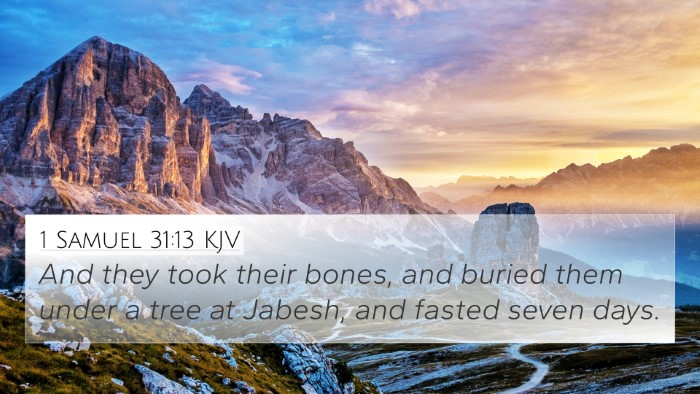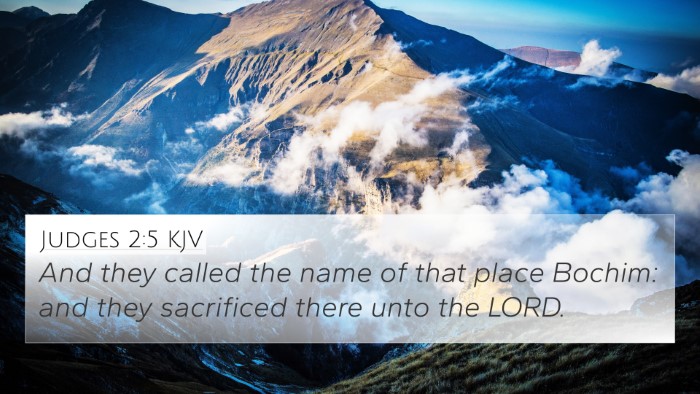Understanding Genesis 35:8
Genesis 35:8 states: "But Deborah, Rebekah's nurse, died, and she was buried under the oak below Bethel. So it was named Allon Bacuth." This verse, while brief, carries significant implications in the narrative of Jacob's family and the broader themes of loss, memory, and the transition of familial ties in Scripture.
Summary and Interpretations
The commentary insights from Matthew Henry, Albert Barnes, and Adam Clarke can be synthesized as follows:
- Death and Mourning: The death of Deborah, Rebekah's nurse, signifies a personal loss for Jacob and his family. Her role as a nurse and caretaker plays a part in conveying the importance of family ties and care, which resonates throughout the narrative.
- Symbolism of Burial Site: The location of her burial under the oak signifies the establishment of a memorial. The oak is often seen as a symbol of strength and endurance, implying the lasting impact Deborah had in their lives.
- Naming of Allon Bacuth: The name, meaning “oak of weeping,” emphasizes the grief associated with her passing while also serving as a reminder of her nurturing presence.
Connections to Other Bible Verses
This verse connects with various themes and individuals throughout the entirety of the Bible. Below are notable cross-references that illuminate its meaning:
- Genesis 24:59: Rebekah's caregivers, showcasing the importance of nurturing figures in the lives of biblical characters.
- Genesis 35:27-29: Jacob's eventual reunion with his father Isaac underlines themes of family transitions and loss.
- Numbers 20:29: The mourning of Aaron highlights the cultural significance of grieving the death of loved ones within the Israelite community.
- 1 Samuel 10:2: Reference to the importance of family legacy, linking figures from Jacob's past to future leadership.
- Hebrews 12:1: The importance of being surrounded by a "great cloud of witnesses," resonating with the memory of those who have passed.
- Psalms 30:5: "Weeping may endure for a night, but joy comes in the morning," relating to the seasons of grief and eventual restoration.
- Job 14:14: Job's reflections on death and hope of resurrection tie into the themes of life and loss presented here.
- Luke 7:11-15: Jesus’ compassion during a funeral reflects the understanding of death and its impact on the living.
- John 11:35: Jesus weeping at Lazarus' tomb illustrates the emotional weight of death, connecting to the mourning over Deborah.
- 2 Timothy 1:5: The faith passed down through families emphasizes the legacy left by figures like Deborah.
Thematic Bible Verse Connections
In reflecting on Genesis 35:8, connections can be drawn across various themes found in Scripture:
- Legacy and Nurturance: The influence of caregivers throughout the Bible shows how they shape the destinies of key characters.
- Grief and Mourning: Understanding the communal aspects of mourning in scripture allows for a deeper engagement with the emotions depicted in this verse.
- Memory and Commemoration: The act of naming burial places serves as a reminder of the stories and lives of those who have passed, inviting reflection on personal and communal history.
- Transitional Moments: Understanding significant life changes in Scripture can provide clearer insights into the nature of faith, memory, and human relationships.
Cross-Referencing Tools and Methods
When studying biblical texts like Genesis 35:8, employing tools for cross-referencing can enhance understanding:
- Utilize a Bible concordance for thematic studies and connections.
- Engage in cross-reference Bible studies to unpack deeper meanings.
- Explore comprehensive Bible reference resources for broad context.
- Implement Bible cross-reference guide systems for effective study.
- Identify connections through cross-reference Bible study methods that emphasize thematic interlinking.
Conclusion
Genesis 35:8 serves not only as a narrative detail but as a lens through which we can examine themes of loss, the significance of family relationships, and the enduring nature of memory within the biblical text. The cross-references provided enable a deeper understanding of how this verse connects to broader biblical themes, enriching one’s study and appreciation of Scripture.
